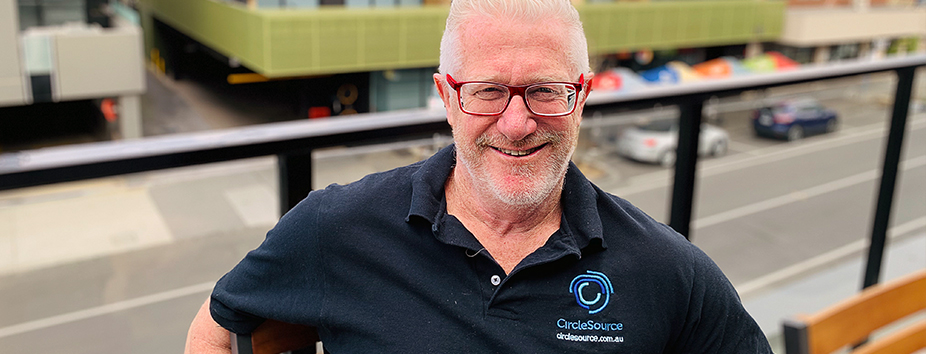How do you find business investors in the middle of a pandemic

3-minute read

3-minute read
How do you secure business investment during a pandemic? Andrew Jarvis from CircleSource shares his tips on how to find business investors during an economic crisis.
Bringing in business investors can be a difficult undertaking at the best of times, let alone during a global economic downturn. Before COVID-19, Andrew Jarvis, CEO of CircleSource, an expert marketplace and networking platform, was in the mix to land a major client – and investment to go with it if they succeeded. However, as the pandemic struck, the deal was put on hold. To still secure their investor, Jarvis turned to ‘Plan B’ – and successfully so. Here, he shares how he did it and his advice on how to find business investors amid a global economic downturn.
Jarvis says that having the fundamentals in place is key. “The initial stage is really being convincing,” he says. “If you're not believable, if you don't have the drive, and the investor doesn't think that you actually believe in what you're doing, then you're not going to get past stage one.”
“Clearly, you've got to be strategic, you've got to have good business fundamentals in place. Ultimately, people are very quick to predict whether you’re fair dinkum, or whether you're overstating and being overly ambitious about where you're at.”
A key aspect that helped CircleSource to close the deal was having a viable product in the marketplace. Jarvis says the investor wanted to “see, touch, and feel a real product,” rather than just an idea or concept.
“We'd been in the market for three years and we bootstrapped this business the whole way through,” he says. “We built the product, we've taken the product into the market, we've been developing the business, we've been getting traction.”
“So, you know, we had that investor on the journey with us over the last 12 months.”
“Part of the approach we took with managing and dealing with investors is that it's not just a transaction,” Jarvis explains. “It's actually a holistic engagement process, whereby you're introducing them not only to your business, but to yourself and your team. You're really sizing up the fit between yourself and the investor.
“The fact is, if you're successful in landing funds, you're going to be working together from there on in … so there's got to be that fit, there's got to be that relationship and a shared vision for the business.”
When COVID-19 struck, CircleSource went back to its models and checked its business fundamentals carefully. That helped the business show that the COVID-19 crisis was also an opportunity. “Whilst there were obviously some economic issues that we needed to factor in, there was also the fact that this particular downturn or this particular pandemic turned a light on the support that businesses around the country actually need,” Jarvis says.
“We were able to quickly demonstrate how the timing and the potential was probably right for us to actually be in a position to really take this business model into the market, given the needs and support that businesses, particularly SME’s and local communities, around the country were going to need to come out of this.”
“The other thing that went a long way for us was the fact that we did have skin in the game, and that was really well regarded by the investor,” Jarvis says.
Jarvis and his fellow founders have invested their own money in the venture; they had also brought the product to market and grown their customer and user base substantially since launch. The investor could see that, which was important.
“We felt that we needed to actually own it, we needed to take the risk and step out of our secure corporate roles and put our own money into actually developing our vision into a minimum viable product,” he explains. “We made a very definitive decision, myself and my business partners, that we were never going to try and raise funding on the back of an idea or concept. That just didn't sit well with us.”
Jarvis says many founders are unrealistic about their chances of making it, and don’t leave themselves enough runway to get their venture to sustainability, which may be one of the reasons why many startups don’t go the distance.
“Too many people starting a business think that it's going to be an overnight success. They think, ‘Yeah, I'm going to pick up funding really easily’. And suddenly they find out after the first three months, six months, they’ve got no cash flow or traction and they've got no financial backing, and they've got nowhere to go.”
CircleSource is a Business of Tomorrow alumni.
“We know how hard this startup business game is,” he cautions. “Overnight successes have generally got eight or nine years of really hard work, that nobody else knows about, that's gone into the development of that business.”
“The big lesson for us was making sure that we were in a position to be there for the long haul, to get through the tough times.”
This information does not take into account your personal circumstances and is general. It is an overview only and should not be considered a comprehensive statement on any matter or relied upon. Consider obtaining personalised advice from a professional financial adviser and your accountant before making any financial decisions in relation to the matters discussed in this article, including when considering tax and finance options for your business.